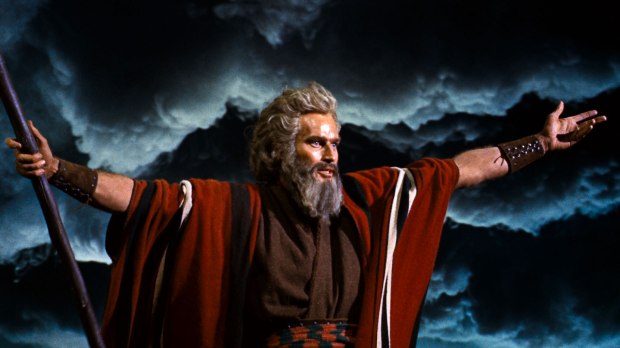Scripture is full of deeply significant phrases that may pass us by unnoticed. Take the first reading from Mass on the Solemnity of Pentecost. The first verse of chapter two of Acts reads: “When the time for Pentecost was fulfilled, they were all in one place together.” We as Christians might sometimes be forgetful of the context of this passage. The Pentecost referred to here is not the Christian feast day, but rather, the Jewish one. (Indeed, our holy day takes its name from the Jewish feast.)
The feast of Pentecost, or Shavout, is a four-day feast also known as the “Feast of Weeks,” and takes place 50 days after the Passover. Passover and Shavout are intimately connected.
Passover recalls the 10th plague upon the Egyptians, after which Pharaoh released the Israelites from slavery. Shavout commemorates the end of that initial stage of Israel’s journey out of Egypt, when Moses brought them to Mt. Sinai and gave the people the Law by which they would live. Passover celebrates their freedom from bondage, while Shavout celebrates the new covenant formed between God and Israel. It is a reminder that they were freed for something: to be God’s holy people, a royal priesthood, a light to the nations.
Deeper meaning of Pentecost
This context helps us understand the deeper meaning of Pentecost. Acts says that this event takes place “when the time for Pentecost was fulfilled.” This means it was the end of the holy days of Shavout, which would put it 50 days after Jesus’ resurrection. But this phrase does not merely mean that the Holy Spirit came at the end of the celebration of Pentecost. If Pentecost celebrated the giving of the Law, then we can understand this phrase to mean something deeper: that the law itself, the purpose of the law, had been fulfilled.
In the Sermon on the Mount, Jesus tells the crowds,
“Think not that I have come to abolish the law and the prophets; I have come not to abolish them but to fulfill them.For truly, I say to you, till heaven and earth pass away, not an iota, not a dot, will pass from the law until all is accomplished.” (Matthew 5:17-18)
How does Jesus fulfill the Law? By His death and resurrection.
St. John the Baptist had identified Jesus as the Lamb of God (John 1:29). Jesus’ death on the cross took place just prior to the beginning of the Passover, when the Passover lambs were being slain. In his crucifixion, Jesus is both victim and priest, offering Himself in atonement for our sins. One chief purpose of the Law of Moses was to provide the people of Israel ways to make reparation for their sins, through the various sacrifices prescribed by the Law.
Yet, as St. Paul points out in the Letter to the Romans, the sacrifices of the Law could not justify us. Jesus’ self-sacrificial offering, however, is infinitely perfect. Jesus fulfills the Law by offering Himself as the pure sacrifice by which a new and eternal covenant (Jeremiah 31:31, 32:40) would be made between humanity and God. This new covenant is sealed not only with Jesus’ death, but with His resurrection, which shows that sin and death have been conquered, and that eternal life is offered to us.
So 50 days after Jesus’ resurrection, then, God shows the Apostles that “the time of the Pentecost had been fulfilled”—that is, that the Law of Moses had been fulfilled. Now, the Apostles and those who followed them would live by “the law of the Spirit of life in Christ Jesus” (Romans 8:2), by “God’s love [which] has been poured into our hearts through the Holy Spirit who has been given to us.” (Romans 5:5)
The descent of the Holy Spirit at Pentecost is the sign of the fulfillment of the Law of Moses, and the beginning of the Law of the Spirit being lived in the heart of the Church.
We can see this great feast of Pentecost, then, as a reminder that Christ keeps His promises. His promise to fulfill the Law, His promise to send the Advocate, His promise to be with His people always — all of these are satisfied with the descent of the Holy Spirit at the end of the feast of Shavout. And this feast is transformed from the memorial of the Law of Moses to the birthday of the Church, when the opportunity to belong to God’s people expanded not only to the Israelites, but to everyone.

